

I’ve worked with professionals from all kinds of backgrounds marketing, law, retail, even modelling, who tell me the same thing: “I wish I’d learned business Spanish sooner.”
Most didn’t want a full-time course. They just needed to handle real conversations with clients, colleagues, and partners. Some needed help preparing for job interviews. Others were already working in the Spanish-speaking world and wanted to feel more at ease.
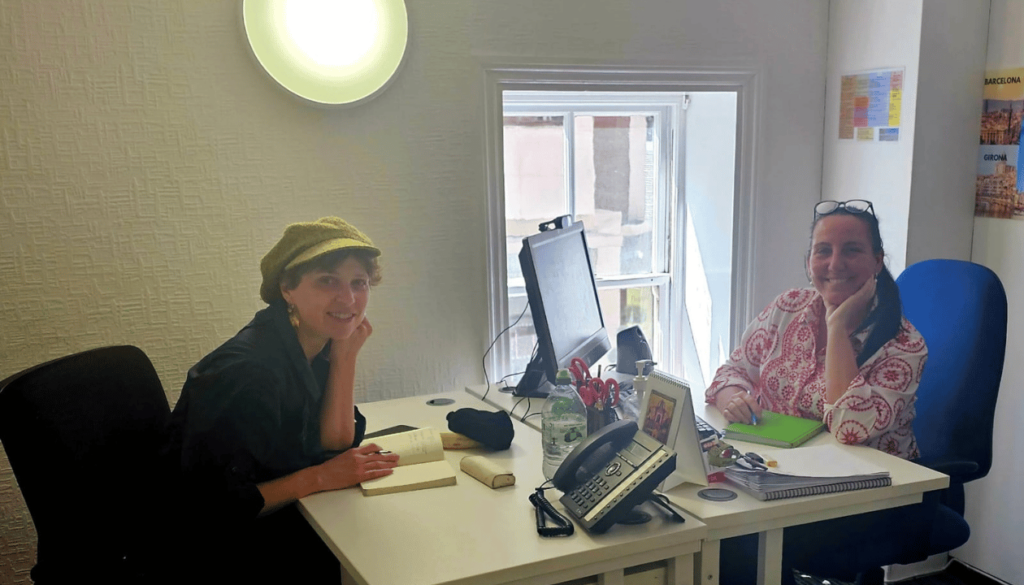
If that sounds like you, here are eleven ways learning business Spanish can help. These are based on what I’ve seen work for our students, and what I think will work for you too.
Why Learning Business Spanish Matters Today
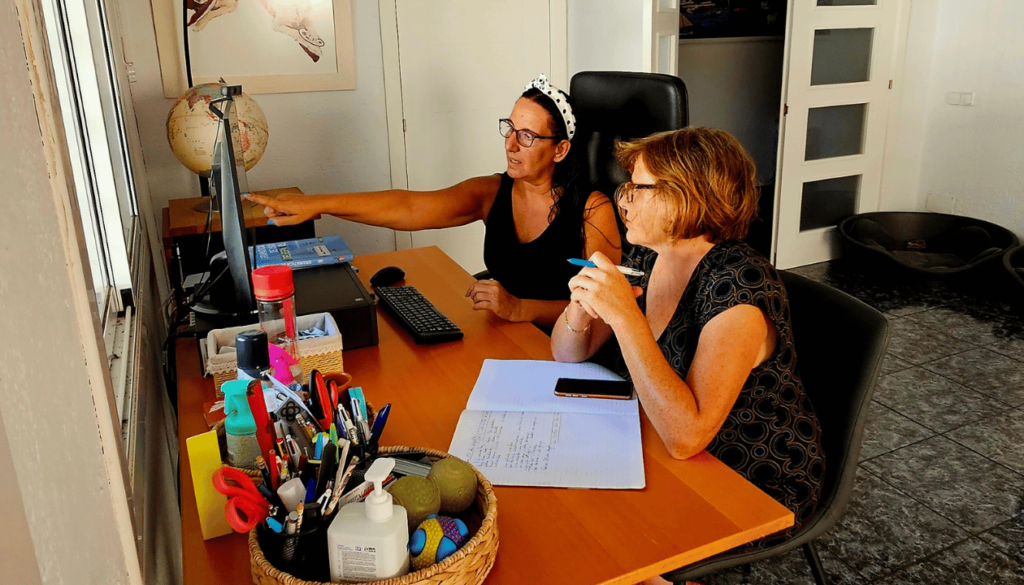
Spanish is spoken by hundreds of millions of people around the world. In business, that means more opportunities, more conversations, and more ways to connect.
Whether you’re emailing clients, giving a short presentation, or having lunch with a partner from Latin America, the ability to speak even a little Spanish changes everything.
It also shows respect. When you make the effort to learn someone’s language, they notice. It builds trust. It makes the conversation warmer, smoother. And it often opens doors that would’ve stayed closed otherwise.

1. You connect better with Spanish-speaking clients
One of the biggest shifts happens when you stop relying on English and start using even a little Spanish. Clients feel it. They relax. They open up. And the relationship changes.
You don’t need to be fluent. Just using a few phrases, the right tone, and active listening skills goes a long way. Spanish-speaking clients often appreciate the effort more than perfect grammar. It shows respect, and that counts.
We’ve seen this happen time and again with professionals who simply wanted to effectively communicate, not impress. The trust that comes from that is what keeps businesses going.

2. You get more out of meetings and conversations
When you’re learning business Spanish, it’s not just about speaking, it’s also about understanding the flow of conversation. You start to notice how people negotiate, when they pause, and what kind of tone they use. Those cues are just as important as the words.

This is especially true in meetings, where one misunderstanding can throw everything off. Even if you’re still learning, being able to follow the conversation or contribute a short comment can shift how you’re seen.
Over time, your language skills get sharper, and you’ll feel more confident jumping in, even during fast-paced discussions.

3. You learn how the business world really communicates
There’s a difference between textbook Spanish and the way professionals actually speak. When you focus on business Spanish, you learn the real-world vocabulary and tone used in everyday exchanges, emails, negotiations, team chats, and even casual voice notes.

It’s about knowing when to be formal, when to be friendly, and when to just keep it clear and simple. That kind of practical learning helps you avoid confusion and sounds more natural.
This kind of preparation is especially helpful if you’re planning to work in Latin America or with companies across the Spanish-speaking world, where small details in language can make a big impact.
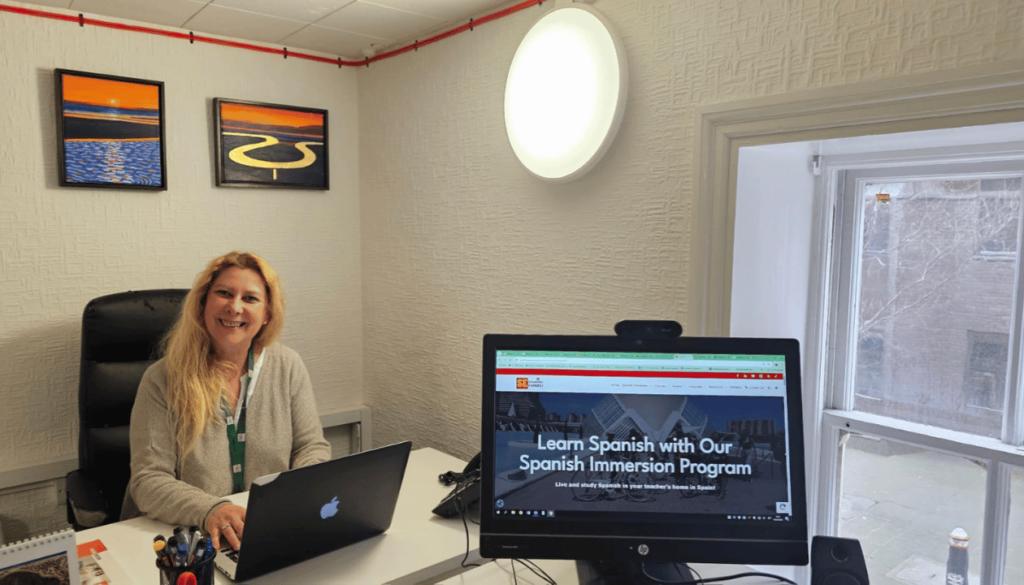
4. You make a stronger impression during job interviews
It’s not just about adding a language to your CV. It’s about showing you can communicate across cultures, understand professional nuances, and adapt. That’s exactly what employers look for, especially in roles that involve international teams or clients.
When you show up to a job interview with some business Spanish, you’re signalling that you’ve taken the time to prepare. Even a short greeting or sentence in Spanish can spark interest and shift the tone of the conversation.
And the best part? The more you practice for real-life situations, the more confident you become, whether you’re answering questions or simply introducing yourself.

5. You connect better with Spanish-speaking clients
When you speak their language, even a little, you instantly lower the barrier. Clients appreciate when someone makes the effort, and it often leads to smoother conversations, clearer expectations, and warmer relationships.
We’ve seen this with our online student Monika, who works in international marketing. Since starting her business Spanish lessons, she’s noticed that her Spanish-speaking clients stay in Spanish instead of switching to English. That shift creates a new level of trust.
It’s not about speaking perfectly, it’s about being understood, showing respect, and building bridges that go beyond transactions.

6. You develop real-world listening skills
Understanding spoken Spanish in a business context takes more than just vocabulary. It’s about training your ear for different speeds, accents, and tones, especially in high-stakes settings like meetings, calls, or networking events.

Improving your listening skills means you’ll stop missing key points or second-guessing what was said. You’ll start catching nuances, reacting in real time, and asking smart follow-up questions, all of which make you more effective.
This kind of progress comes with guided practice, exposure to native speakers, and opportunities to use what you’ve learned in actual conversations.

7. You start to really hear people
It takes time to get used to the way people speak in Spanish, especially at work. The speed, the tone, the way they jump between ideas. But once you train your ear, things click into place.
You stop nodding along, pretending to understand. You actually get it. And that feels good.
We’ve worked with plenty of learners who struggled with this at first. But once they practiced with native speakers and focused on real-life listening, not just textbook audio, it all started to flow. It’s one of the most useful language skills you can build.

8. You feel more at home in the Spanish-speaking world
When you know the language, you’re not just passing through; you’re part of it. You notice the way people greet each other in meetings. You join in on casual conversations after work. You understand the rhythm of the place.
One of our students, Liam, spent two weeks learning business Spanish first in Valencia, then in Barcelona. He wasn’t just memorising vocabulary. He was learning how people really talk, how to follow up after a presentation, and how to join a chat about football or weekend plans.
That’s what helps you blend in not just as a visitor, but as someone who gets it. And that matters, especially when you’re working across the Spanish-speaking world.

9. You stop translating and start thinking in Spanish
There’s a moment when you stop translating everything in your head and just… respond. It’s not always perfect, but it’s real. You’re talking, reacting, and making decisions in Spanish.
That shift happens when you’re around the language every day. You hear new expressions, learn new words, and start picking up the natural flow. It’s how you build practical skills, the kind you can actually use at work.
And once it clicks, it makes everything easier: meetings, emails, phone calls. You’re not pausing to figure out what to say, you’re already saying it.

10. You learn how to communicate, not just talk
Speaking isn’t the same as connecting. You might know the words, but do they land? Are you being clear, respectful, and confident?
Learning business Spanish helps you understand how to effectively communicate in different settings formal meetings, casual chats, and even tough conversations. It teaches you when to be direct, when to soften your tone, and how to navigate the little things that build trust.
This kind of communication goes beyond language. It’s part of becoming someone people want to work with, someone who listens, adapts, and responds with confidence.

11. You gain a real advantage in the business world
Not everyone takes the time to learn a foreign language, especially one that opens doors across Europe, the U.S., and Latin America. So when you do, it sets you apart.
You’re not just adding a skill, you’re showing initiative. You’re proving that you’re ready to meet clients, colleagues, and new challenges with curiosity and commitment. And that’s something employers notice.
For business professionals working with Spanish-speaking clients, this edge can lead to more responsibility, more trust, and sometimes, the chance to lead international projects.
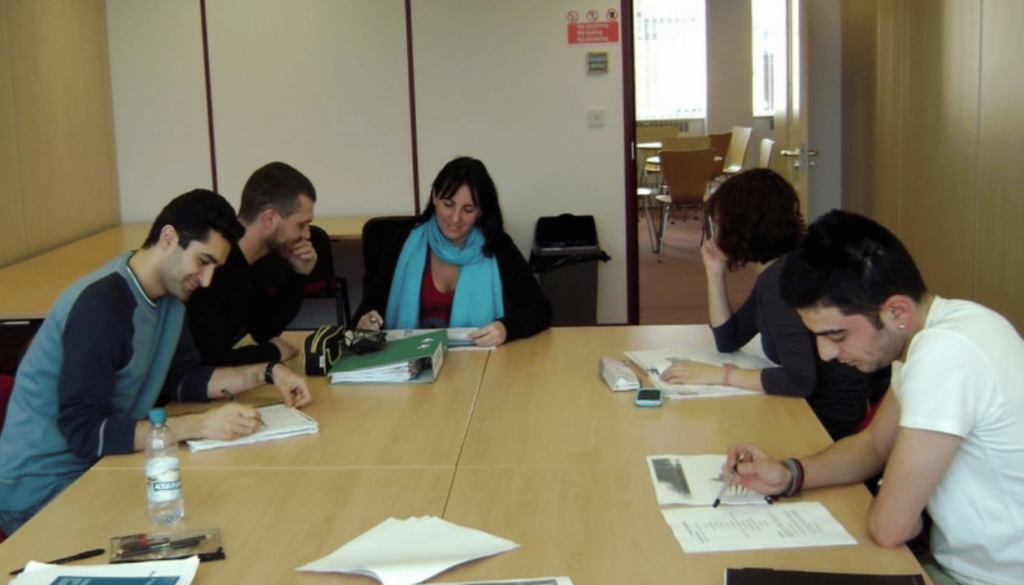
12. You make learning part of your daily life
When you start learning business Spanish, it’s not just about the lessons, it’s about building habits. You might use interactive exercises, keep a notebook of new words, or chat with Spanish-speaking colleagues over coffee.

The learning blends into your routine. Some of our students, especially individual employees supported by their companies, say the most progress happens in everyday moments—reading a short email, listening to a voice note, or preparing a presentation.
And because you’re learning in ways that feel relevant and useful, it actually sticks. It becomes part of how you work—and who you are.

How to Learn Business Spanish in a Way That Actually Works
There’s no one-size-fits-all method for learning business Spanish. What matters is finding an approach that fits you—your schedule, your goals, and the way you like to learn.
Some people enjoy structured lessons with expert instructors. Others prefer a mix of interactive exercises, short daily tasks, or joining casual conversations with Spanish speakers. And for many learners, it’s a blend of both.
At Spanish Express, we work with all kinds of learners—people preparing for a job interview, companies training individual employees, or professionals just wanting to effectively communicate with their Spanish-speaking clients. Some study online. Others travel to Spain and learn through our homestay program, like Liam and Monika, who chose very different paths but both gained confidence where it counts.

Here are a few helpful tips if you’re getting started:
- Make time for regular listening and speaking practice
- Keep a list of vocabulary and phrases that matter to your field
- Use flashcards or digital tools to review new words
- Practice writing emails or short summaries to improve tone and clarity
- Pair up with a team member or tutor for role-plays and real conversations
You don’t have to do it all at once. Just start where you are, with what feels doable. And let the progress grow from there.
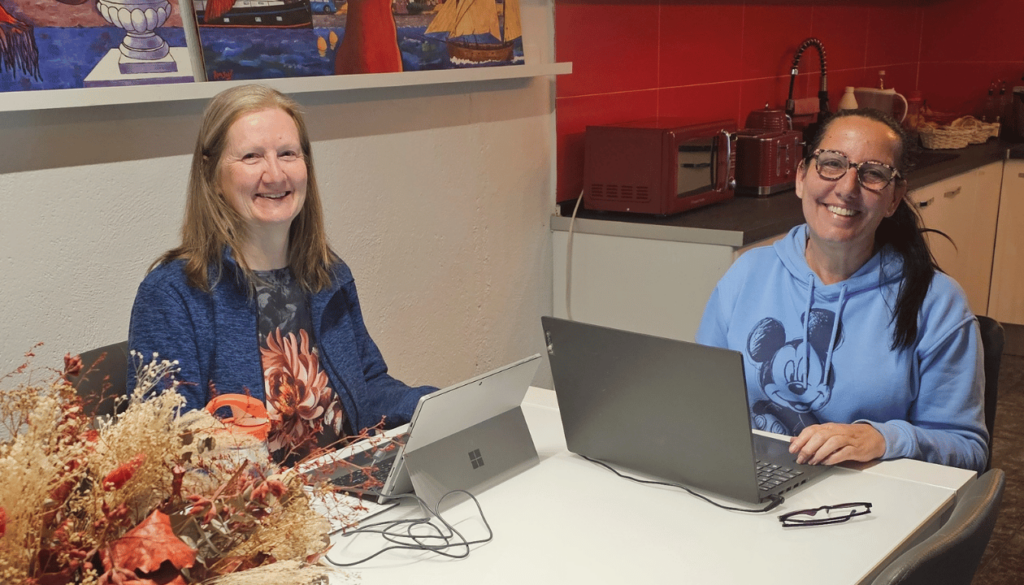
Final Words
Learning business Spanish doesn’t have to feel like homework. It can be real, personal, and even fun.
At Spanish Express, you can join online lessons or stay with a native teacher through our immersion program.
We work at your pace, focus on your goals, and keep it practical—whether you’re preparing for a job interview, handling meetings, or just chatting confidently with Spanish-speaking clients.

